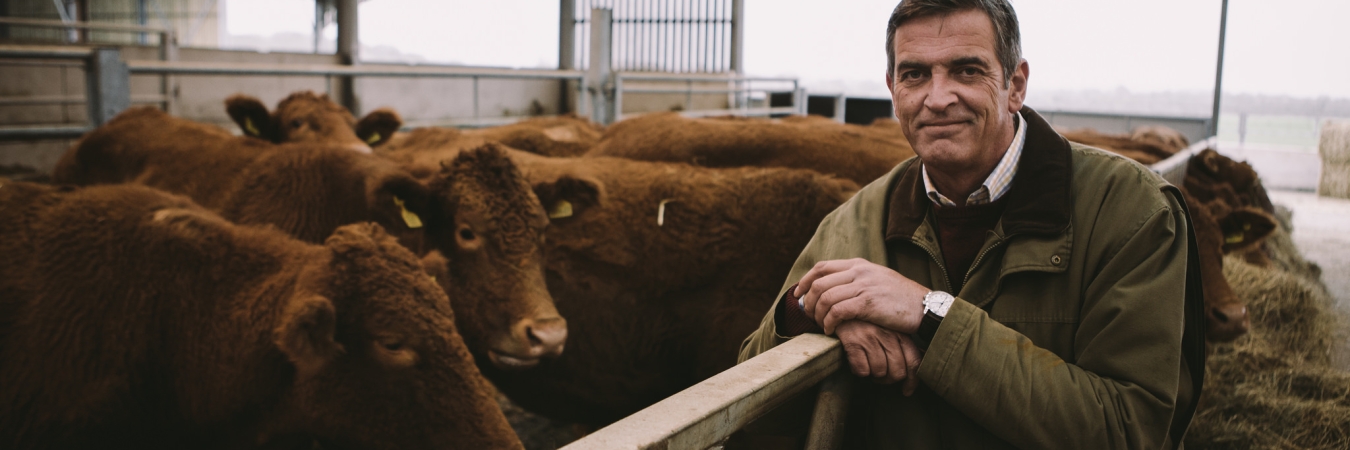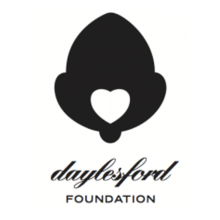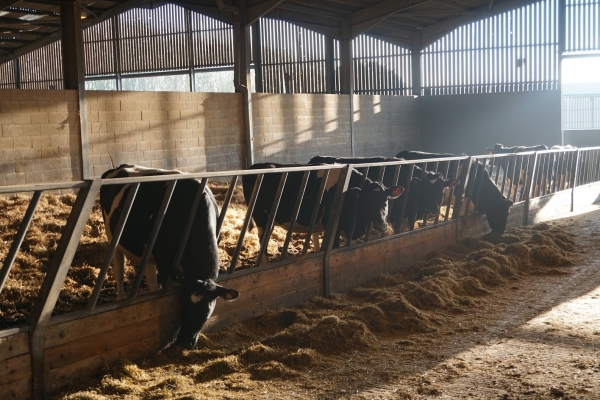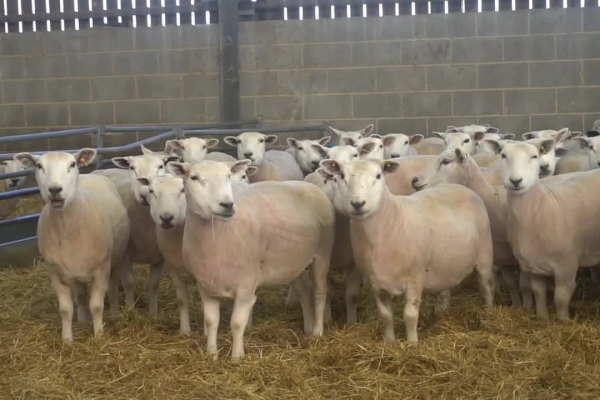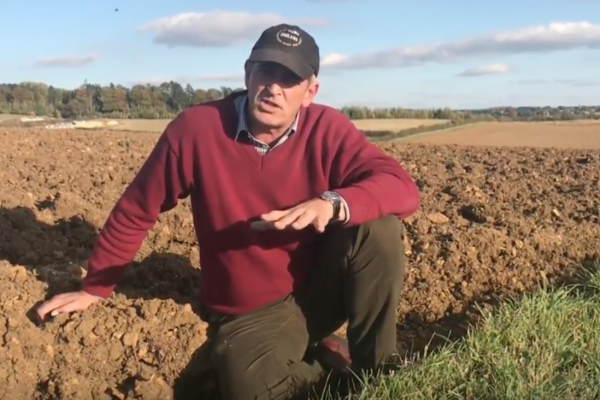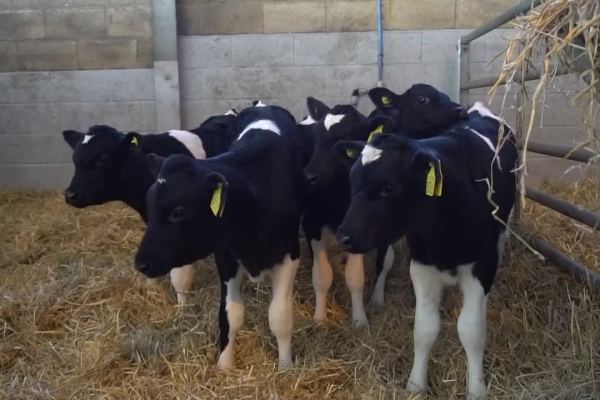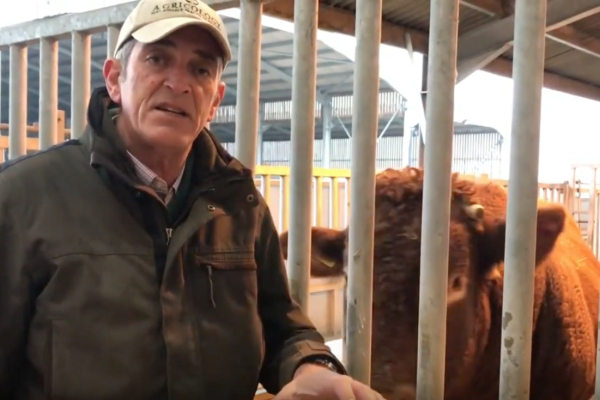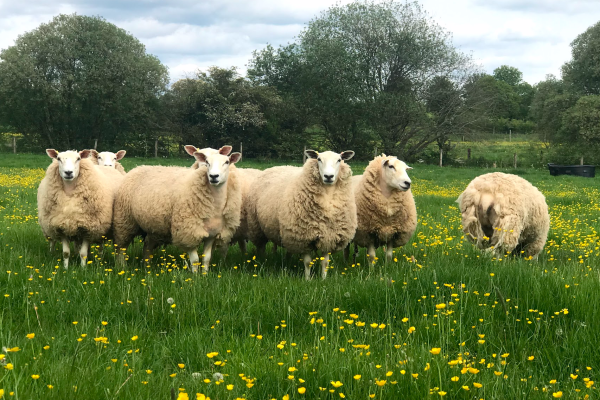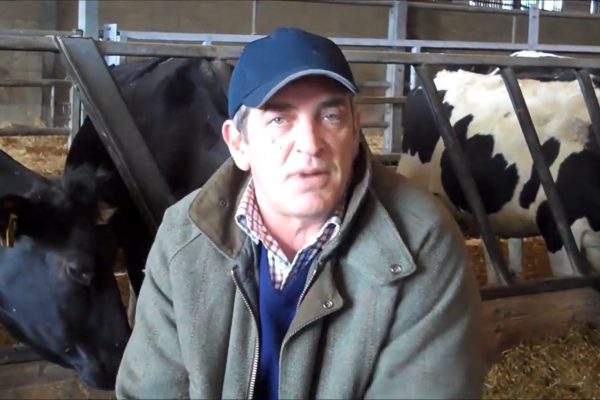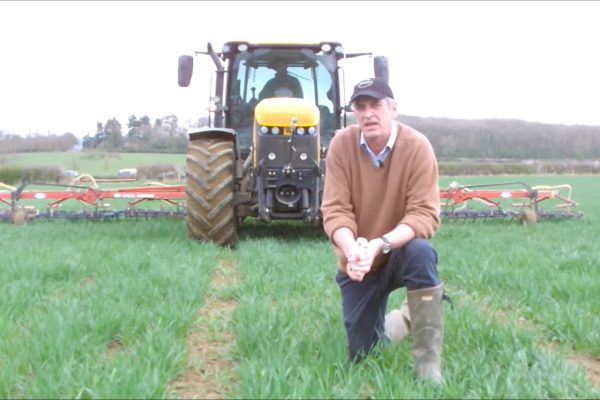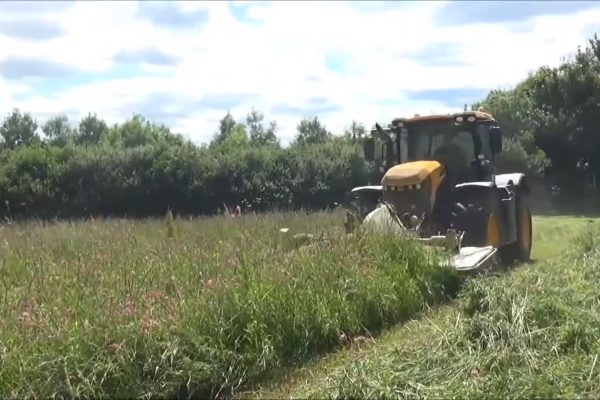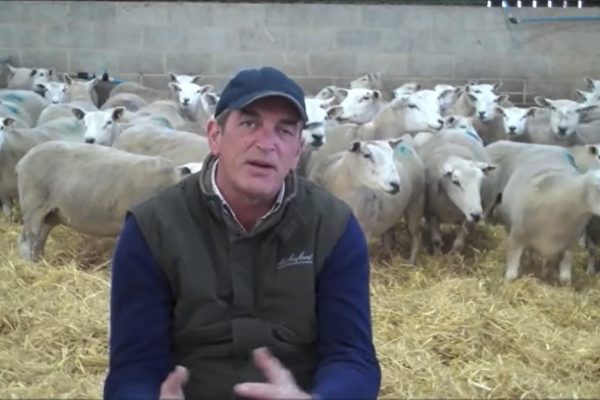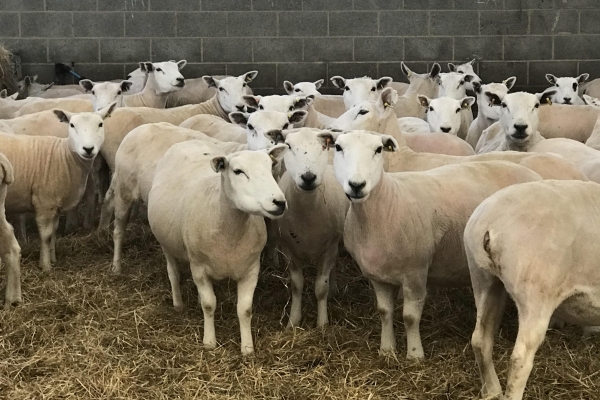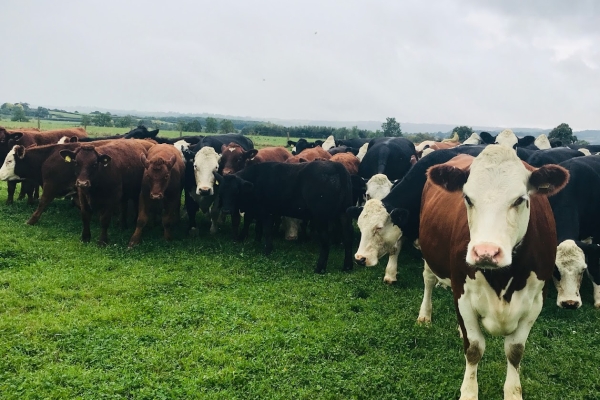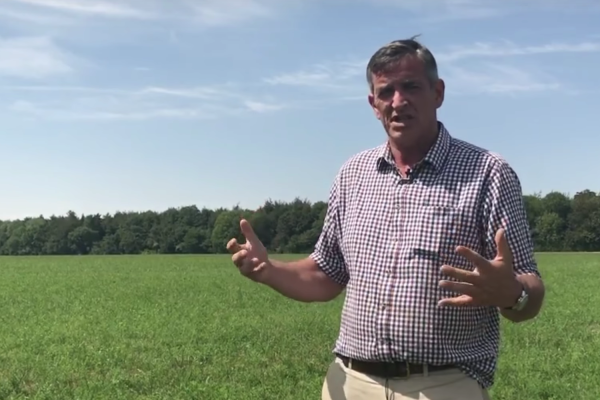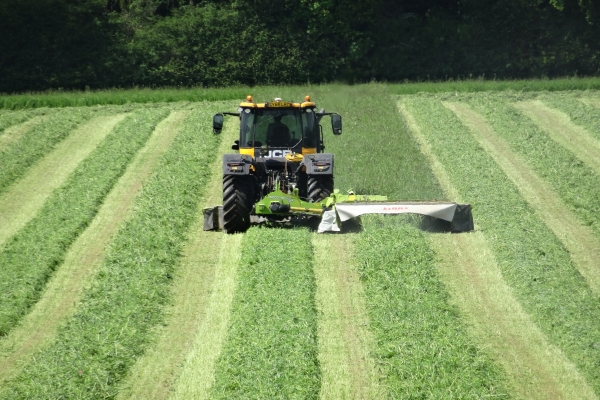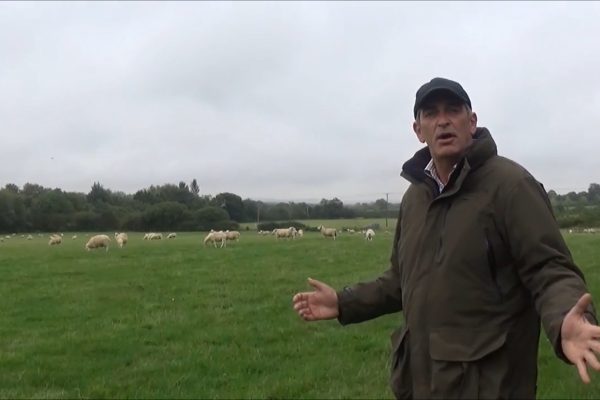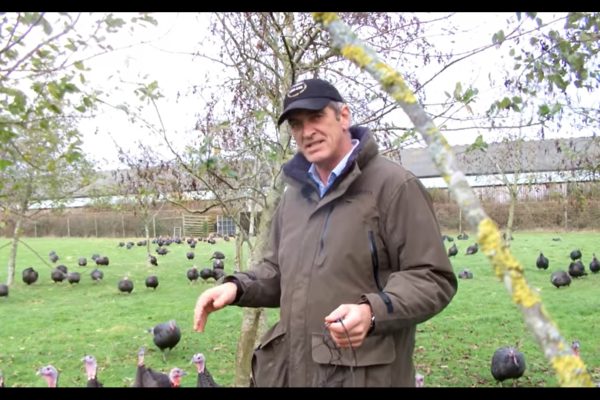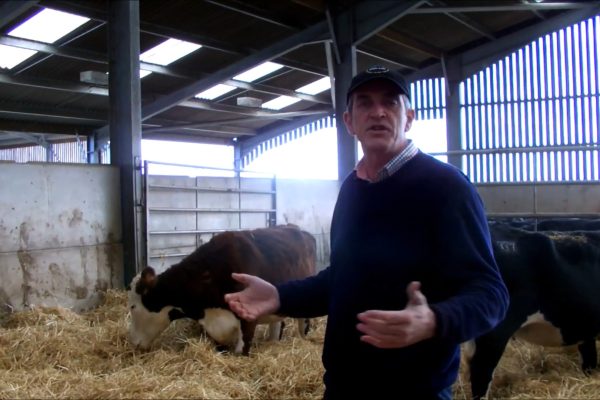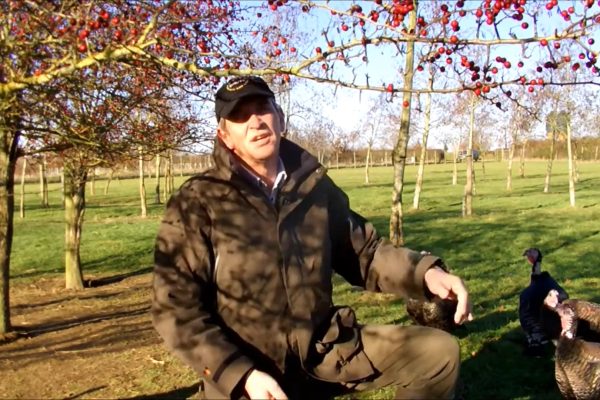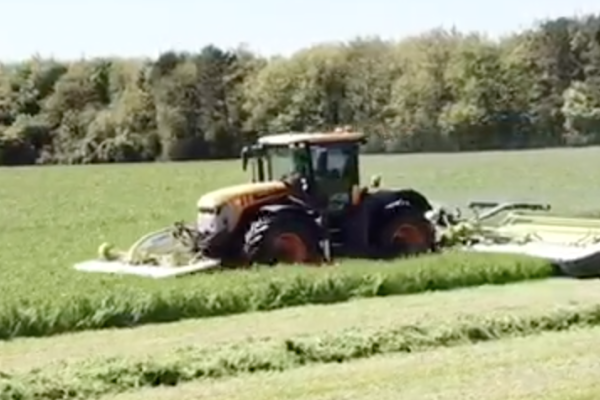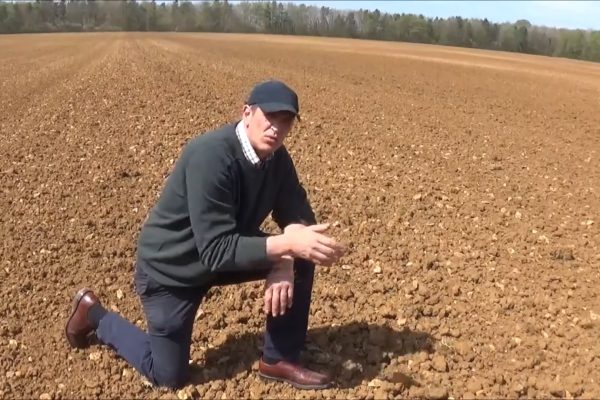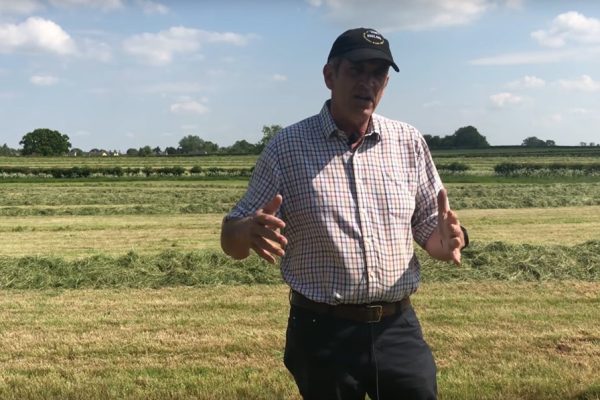Richard Smith
Daylesford Organic Farms Ltd
Daylesford farm in Gloucestershire has been farmed organically for over 35 years. We produce pedigree Friesian, Aberdeen Angus and South Devon cattle; pedigree Kerry Hill, Ryeland, Cotswold, Texal and commercial Llyen sheep; laying hens, turkeys and geese. As a mixed farm, we grow combinable crops including winter and spring oats, winter and spring wheat, triticale, winter and spring barley and occasional spring/winter beans. Rotational leys are an essential part of the system and consist of sainfoin, red and white clover. We also have 540 hectares of permanent pasture. The farm has 40 hives across 5 apiary sites.
Daylesford farm strives to be truly sustainable by using no pesticides or fertilisers, managing field rotations, creating wildlife habitats, harvesting rainwater, installing solar panels and by practicing animal husbandry of the highest standards. Ruminant livestock are fed a GM-free, organic, forage-based diet grown on our own farms. We are committed to reducing fossil fuel usage and carbon emissions, and we’re on the way to sending nothing to landfill.
Most of our produce is sold as direct sales. We have our own abattoir and produce own-branded products from our food production units. Some produce is marketed via online sites like Ocado. Daylesford Farm has a farm shop, butchers, café, a cookery school, holiday cottages and health spa. There are also four retail outlets in London. Daylesford hosts quarterly open-farm events, peaking with a Summer Festival. Events and hospitality are an important part of the business. Our success depends on passion and enthusiasm… and many farm tours.
Sustainability in practice
Breeding a sustainable dairy cow
We wanted to breed a cow that had above average longevity, was free from lameness, would thrive in a low-input system, and produce male calves for the beef enterprise. Starting with a high-input Holstein herd we began 10 years of breeding from pure British Friesian blood lines, with careful selection of desirable traits from each generation. We wanted to maintain a medium milk yield whilst looking for other beneficial traits, such as: locomotion and avoiding issues of lameness; conformation and suitability to support beef production; a sound udder, with resistance to diseases such as mastitis.
In my experience, the higher the welfare and less stress on the animal, the greater the longevity and resilience to problems. Cows, as ruminants, have evolved to process low-energy inputs (e.g. grasses and herbs). Feeding cows high energy fuels, due to the emphasis on achieving greater yield, must put undue pressure on the animal, and incurs costs due to the external inputs. With this in mind, we sought a breed that can efficiently convert our low-input home grown forage. We also explored different legumes and discovered that sainfoin is very suitable for our farming system, in addition to grass leys of red and white clover. Sainfoin is very palatable for the Friesian herd, has a favourable ME of 13.5%, it builds the soil structure and fertility of some of our poorer soils, and benefits pollinators and our honey enterprise. We analyse the crop for ME content and Dry Matter but without detailed research we can’t correlate to our yields and performance; it just feels right. Building on our analysis would be a good next step.
This approach was derived from experiencing different farming systems, both in the UK and in New Zealand, and a desire to reduce the costs of milk production. The farm has benefited from reduced cost of imported, high protein compound feeds, lowered cost of replacement animals, sales of females, higher animal welfare, virtually no lameness, and staff satisfaction. The challenges have been very few – we have turned our dairy cow into an average, reliable saloon, as opposed to a high octane guzzling Formula One racing cow.
Motivations
I knew from a very early age that agriculture would be my career path. After an excellent apprenticeship in Northumberland, I managed conventional systems in Cornwall before leaving for New Zealand and establishing a beef, sheep and venison system. On returning to the UK I managed the University of Oxford’s Wytham Farm. Here emphasis was placed on breeding programmes to produce maternal and paternal lines that would perform well in the environment we were farming. I moved to Daylesford as Farm Manager in 2005.
We picked the very best of all systems and brought them together at Daylesford. Farming organically has become second nature. By using straightforward and simple husbandry techniques we have achieved high health status within our herds, flocks and colonies. The Daylesford dairy herd is something of which I am particularly proud. A ten year plan to breed back to traditional British Friesians has yielded excellent results. We have moved towards being self-sufficient in feed, have virtually no lameness and contribute to the Daylesford beef enterprise. Our sheep, beef and dairy enterprises are all entirely closed breeding regimes bringing numerous benefits to the farm.
Like all farms we face a plethora of challenges from year to year. Being so diverse means we’re never truly satisfied with every enterprise – annual variation in markets and climate make sure of that. But diversity means that no single challenge will impact the whole system. Having said that, Bovine Tuberculosis is one of our greatest threats, as it is for many farms in this part of the country. We continue to strive towards complete self-sufficiency, and at times we are very close. Whether that is a closed flock of sheep, home-grown forage, water harvesting, energy generation, or owning the entire value chain; our ongoing goal is to prove that an environmentally and socially sustainable farming system is viable.
“I have always believed that British agriculture is at the forefront of farming worldwide. The promotion of British agriculture, and especially sustainable farming systems, is something that I am genuinely passionate about.”
Richard Smith
